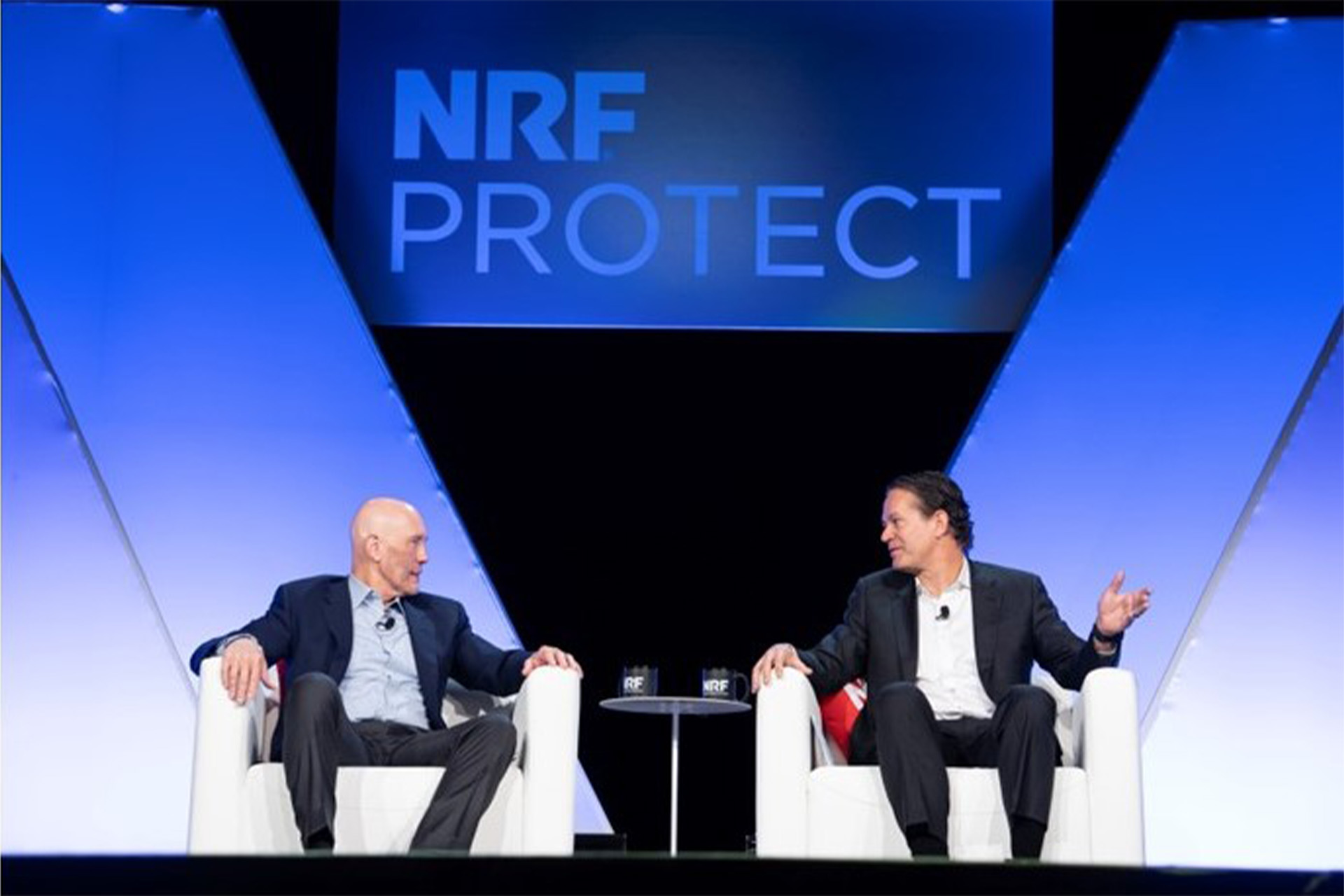Organized retail crime is becoming a more serious issue as affirmed in an onstage discussion between John Furner, Walmart U.S. CEO and National Retail Federation board chairman, and Matthew Shay, NRF CEO, at the organization’s annual security conference.
At NRF Protect last week in Grapevine, TX, Furner and Shay discussed the importance of collaboration in addressing retail security issues in general and organized retail crime in particular.
The retail industry is subject to society-wide security issues that affect the sector as well, Furner noted. When it comes to security, one key shared issue is the increasing sophistication of criminal organizations.
Furner pointed out, “The complexity in the environment has changed pretty considerably over the last three decades. But the amount of retail crime we are seeing across the country has increased pretty precipitously over the last three to four years. The sophistication of the bad actors, the threat actors, has also increased. The solution is a combination of talent, tools, technology and coalitions of industry, society and government, all working together to solve this issue.”
ORC growth and persistence have become more evident anecdotally and quantifiably, Shay said, noting that NRF research determined that organized retail crime cost retailers $95 billion dollars in 2022 up from $90 billion in 2021. He added that organized retail crime is “a really acute challenge. This is about the safety and health of customers and of communities, and certainly of those millions and millions of associates and team members and partners that work across the retail industry.”
Furner called ORC “a threat to all companies and all members that we serve. I’d encourage everyone to, when possible, share the data so that we can work together to get ahead of some of these issues.”
Shay pointed out that progress had been made in terms of winning legislative aid in dealing with ORC but the work continues. NRF, the International Housewares Association and other organizations as well as many major retailers backed the Inform Act, which requires online marketplaces to verify the identity of high-volume sellers operating on their platforms so as to identify and deter fences who sell the merchandise stolen in ORC operations. The next step is to develop a centralized clearing house for information on retail crime at the Federal level of government to get a better picture of ORC operations that cross state and international borders and coordinate means to combat the ongoing problem.
“Last year, we were able to get the Inform Act across the finish line,” Shay said. “And the Combating Organized Retail Crime Act, which we’re now working very aggressively to get through Congress, will give Federal agencies the authority to convene and collaborate and distribute resources to law enforcement agencies across the country to the areas that need it.”
In a flash poll taken of participants at NRF Protect, 86% of respondents said that ORC has more of a threat to their businesses versus three years ago, with 12% saying the same and only 1% saying less.
More than 2,000 security and related operations professionals attended NRF Protect, the organization stated, where loss prevention, asset protection, digital fraud and cyber risk communities, were among the key topics.





